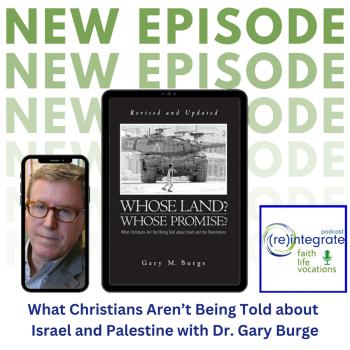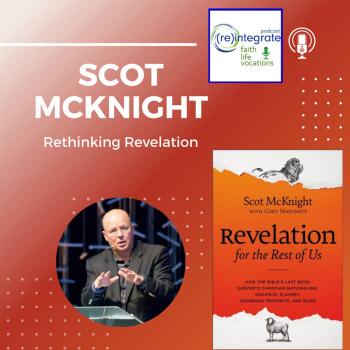A third way to understand Spiritual Gifts.
As a pastor, I have administered plenty of “Spiritual Gifts Tests” to my congregations. Now let’s be honest. The purpose of these tests is one thing: To figure out how people can best volunteer in church ministries. Of course, we believe that God’s people should be using their gifts for the benefit of his people. We quote Ephesians 4, where gifts equip the church for “building up the body of Christ” (Ephesians 4:12) and 1 Corinthians 14 where we are told that since we are eager for gifts of the Spirit, “try to excel in those that build up the church” (1 Corinthians 14:12). Therefore we want our people to experience the joy of using their gifts in the context of his church.
But…
Are the gifts only for the benefit of local church ministry? Is there not a wider, broader purpose for God’s giftings to his people? As a pastor, am I willing to help people discover and utilize the gifts God has given them for more than my church’s purposes?
Spiritual Gifts Can Cause Division
The issue of Spiritual Gifts has caused division in the Church. Therefore, it must be handled very carefully. There is a spectrum of understanding on Spiritual Gifts. Most Christians would say that they are somewhere in between these two sides:
On one side, we have churches that see certain charismata (grace gifts) as supernatural gifts that demonstrate God’s extra level of grace to the recipient. For Pentecostals especially, the gift of tongues is seen as a “second blessing” and evidence of the “second baptism” of the Holy Spirit.
On the other side, we have those who insist that these more “miraculous” gifts (tongues, healings, prophecy) were “Signs of the Apostles.” These cessationists say that God gave the Apostles special gifts so that people could recognize them as the authoritative Apostles of Jesus Christ. The vindication of their authority laid the foundation for the church through their inspired writings. According to cessationists, after the Apostles died and their writings were gathered as the New Testament signs and wonders past. Therefore, we should not seek them today.
No matter which side you lean towards in that debate, I want to give you yet another way to understand Spiritual Gifts.
This third way to view Spiritual Gifts has to do with Creation and New Creation.
Spiritual Gifts in the Old Testament
In the beginning, God made humans in His image. Throughout history, we see humans gifted by God’s Spirit to do wonderful things that imaged God’s creativity, love, and dominion over the creation.
For instance, Bezalel, Oholiab, and other men were “filled with the Spirit of God, with skill, ability and knowledge in all kinds of crafts” (Exodus 31:1-11). God’s gifts of poetry and song were given to various people as well. And, of course, there were those more amazing gifts to interpret dreams and to prophesy. So, God’s gifts to humans (so that they can do their work as image bearers) are freely given to his people at various times and in varying degrees.
Now, get your mind around this concept: This is the normal state of affairs in God’s good creation. We’ve grown accustomed to calling human skills, abilities, and knowledge (like crafts, poetry, medicine, etc.) “natural,” while we call certain more flashy gifts as “supernatural.” No dichotomy like this is found in the Bible – not in the original Created Order, and I submit that this is what is being restored in the New Creation.
Spiritual Gifts in the New Testament
One of the great prophecies concerning the New Creation was given by the prophet Joel. When the Spirit was poured out on the church at Pentecost in Acts 2, Peter saw it as evidence that Joel’s prophecy was being fulfilled (Acts 2:16-21).
And it shall come to pass afterward,
that I will pour out my spirit on all flesh;
your sons and your daughters shall prophesy,
your old men shall dream dreams,
and your young men shall see visions.
Even upon the menservants and maidservants
in those days, I will pour out my spirit. (Joel 2:28-29)
Joel says that when the New Creation begins, God’s spirit will be poured out “on all flesh.” The Spirit’s presence would be not just on those who are elite workers, but also on the servants.
When Jesus began his ministry, we read that “Jesus returned in the power of the Spirit into Galilee” (Luke 4:14). This power healed and cast out demons (Luke 4:31-41). Jesus proclaimed that “if it is by the Spirit of God that I cast out demons, then the kingdom of God has come upon you” (Matt. 12:28). A new day had begun to dawn in the person and work of Jesus Christ. Amazing things were beginning to happen. The Kingdom of God had been inaugurated.
But also notice: This power from the Spirit of God not only empowered Jesus to do these amazing feats; the Holy Spirit also empowered what we would not normally call “supernatural.” Jesus was anointed to preach good news to the poor, to proclaim freedom for the prisoners and recovery of sight for the blind, to release the oppressed, and to proclaim the year of the Lord’s favor (Luke 4:15-22). Overcoming injustice is not normally seen as “supernatural,” but it is just as much a part of the New Creation as casting out demons.
Jesus sent his disciples out, saying, “The kingdom of heaven is at hand” and told them, “Heal the sick, raise the dead, cleanse lepers, cast out demons” (Matt. 10:7-8). And this SPirit-empowered kingdom work was meant to continue as we saw in that Acts 2 passage, when the Spirit is now beginning to be poured out on all flesh.
No Difference between “Supernatural” and “Natural” Gifts from God
In the original Creation, God empowered humans to do that which should come “natural” to them. God gives “free gifts” to his people so that they can fulfill their call and purpose – to be Image-Bearers. These gifts do not transcend our natural existence, so to call these gifts “supernatural” is a misnomer. Certainly, they come from the Supernatural One, but they are natural to being human.
In other words, the existence of Spiritual Gifts should be seen as belonging to the natural order of God’s good creation. And with the beginning of the New Creation, we should not be surprised that God pours out his Spirit on people to do even more things, since not only are we in need of power to do creative things, we also need power to do redemptive things – simply because there are redemptive things to do after the Fall.
In the words of Albert Wolters in his must-read book, Creation Regained: Biblical Basics of a Reformational Worldview (available from Reintegrate Partner Hearts & Minds), the more ‘miraculous’ gifts…
“are gifts of the Spirit as genuinely as love, joy, and peace are, but they do not add anything to what God had intended for his earthly creation from the beginning. They are therefore ‘natural.’ They are like faith, only someone regenerated by the Spirit can have faith (true faith, that is, faith in Jesus Christ) but this regeneration does not make faith foreign to the Creator’s original purpose. And just as faith as a general human function is not unknown outside the body of Christ (though it is always misdirected there), so the charismatic gifts are not unknown outside the body of Christ (though they are misguided and abused there).”
Spiritual Gifts for the Benefit of Both the Church and for the Common Good
So, in the New Creation, we find God does indeed bestow gifts to people for the building up of his church.
But not only that.
The Holy Spirit distributes different kinds of spiritual gifts, and “to each one the manifestation of the Spirit is given for the common good” (1 Corinthians 12:7). In my expereince, most pastors quickly gloss over that verse. I know I did. How could I miss that? Gifts are also for the common good!
Wolters writes,
“All human talents and abilities can flourish and blossom under the regenerating and sanctifying influence of the Holy Spirit to the glory and service of God. When opened up by the Spirit they are all charismatic gifts. This applies to social tact, to a way with children, to a knack for communicating, to mechanical skill, or whatever. There may be degrees of importance or splendor in the gifts, but all alike qualify as ‘charismatic’ and ‘spiritual’ if they are directed to Christ’s redemption, sanctification, and reconciliation.”
Not everyone has been given all of the Holy Spirit’s gifts. Not everybody is able to speak in front of people; not everybody is able to lead a group of people, Neither is everybody given the gift of tongues or healings or prophesy. And not everybody has the ability to be a math whiz (I jokingly tell people, “I went into ministry because I understood there would be no math”); not everybody is a poet; not everybody is good with their hands; not everybody can cook; not everybody can see and come up with remedies to injustice.
The point is this:
Many of these gifts need to be seen as a part of God’s intention for the Original Creation, and many of these gifts are restored and enhanced as a part of the New Creation that came in Jesus Christ.
You are gifted for specific callings that God has placed upon your life. You are not going to be good at everything, but you can, and should, seek to glorify God in that which you are gifted.
Both in the church and for the common good.
Image by Cindee Snider Re. Used with permission. Sourced via Flickr.













